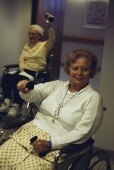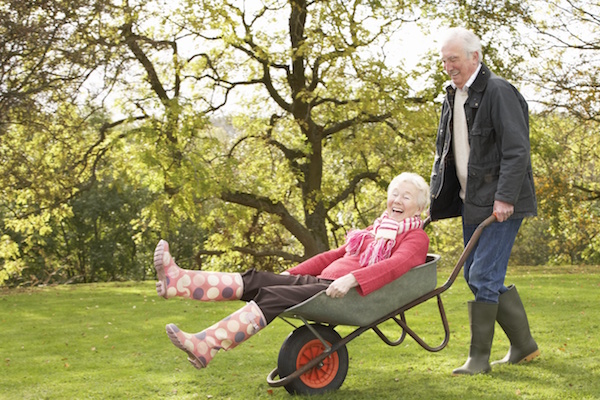
THURSDAY, Jan. 13 (HealthDay News) — Fall screening and prevention should be a regular part of health care for older adults, and all programs to prevent falls should include exercise, according to updated guidelines for preventing falls in the elderly.
A summary of the American Geriatrics Society and British Geriatric Society recommendations — based on a review of fall prevention studies — appears Jan. 13 in the Journal of the American Geriatrics Society.
“Falls are one of the most common health problems experienced by older adults and are a common cause of losing functional independence. Given their frequency and consequences, falls are as serious a health problem for older persons as heart attacks and strokes,” guideline panel co-chair Dr. Mary Tinetti, of Yale University School of Medicine, said in a journal news release.
Doctors and other health professionals should ask older patients if they have fallen recently or if they are unsteady when they walk. If so, health providers should assess patients for problems such as muscle weakness, poor balance or a significant drop in blood pressure when the patient stands. If they have any of these problems, then older adults should receive the interventions outlined in the guidelines.
These include:
- Exercises to improve balance, gait and strength, such as Tai Chi or physical therapy.
- Making changes to reduce the risk of falls in the home and while doing daily activities.
- Reduction of medications, particularly those that affect the brain, such as antidepressants and sleep drugs.
- Boosting low blood pressure and managing heart rate and rhythm abnormalities.
“We found that the most effective trials for preventing falls in older people looked at multiple interventions rather than just one; previous studies have indicated that it is more effective to focus on one intervention, but because we looked at not only what recommendations were given, but also which carried out, we’re confident that multifactorial interventions is the best course of action,” Tinetti said.
More information
The U.S. Centers for Disease Control and Prevention has more about older adults and falls.

